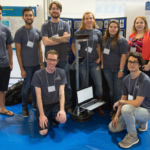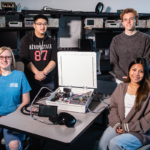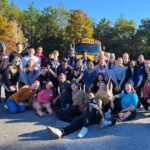UWF Students, Volunteers Trained to Help in Water Sampling
Pensacola – In the late 1960s, Escambia Bay had deteriorated to the point that fish kills were measured in square miles. A group of local fishermen became so concerned about the degradation that they banded together to help protect local waterways.
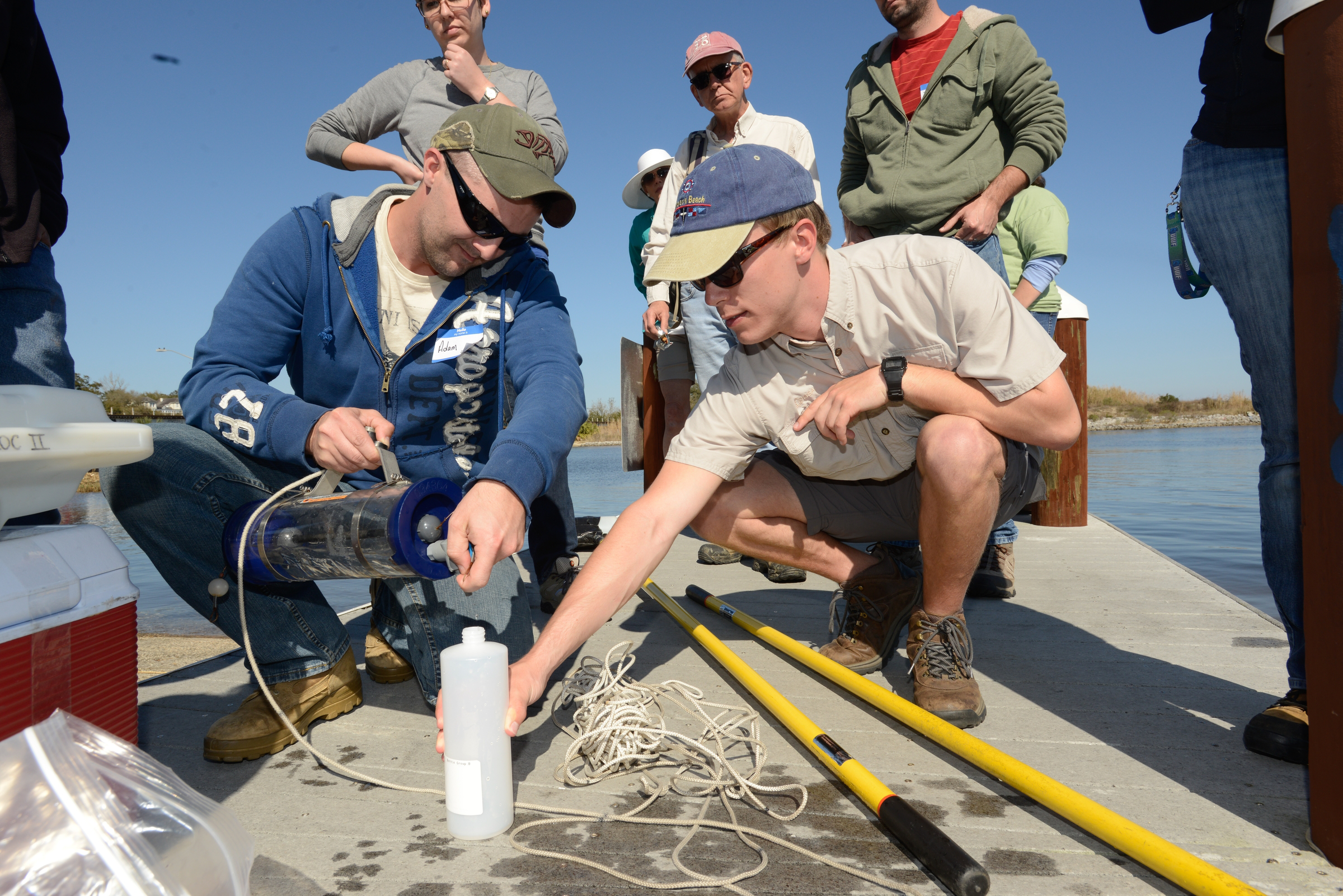
They formed the Bream Fishermen Association, which for more than 50 years has used volunteers to collect samples from area rivers and creeks, providing crucial data that over the decades has been presented to state officials to help identify water quality problems.
However, with some of those original members now in their 80s and 90s, there is a need for the next generation of volunteers, said Barbara Albrecht, who has been a member of the Bream Fishermen Association since 1986 and took over as president in 2011.
“I’m really excited about growing this for young people,” she said.
To that end, Dr. Matthew Schwartz, chair of the Department of Earth and Environmental Sciences at the University of West Florida, has been working with the Bream Fishermen Association to establish an environmental water sampling academy made up of students and community volunteers.
A group of those volunteers, including some UWF students, were recently trained by staff from the Florida Department of Environmental Protection on water sampling techniques near the foot of the Pensacola Bay Bridge.
Schwartz said participating in the sampling will help the students further their professional development.
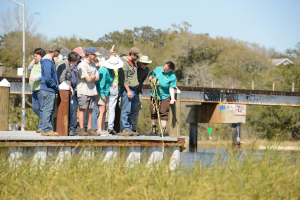
“These students are going to be getting hands on training from the state in what they should be doing if they were doing this for a living,” he said.
Schwartz said getting students involved in the field sampling is also part of a broader initiative he is pursuing to develop an environmental water quality academy.
“This is really about getting students out there to collect these water samples, learn how to do that, and bring them in for someone else to analyze them,” Schwartz said. “But we can also have students who are involved with analyzing the samples, analyzing the data, doing (geographic information science analysis) on what the water quality looks like regionally.”
Volunteers from the Bream Fishermen Association take samples quarterly from 48 different stations from the Perdido, Escambia, Blackwater and Yellow and Shoal rivers, Albrecht said.
“We have a 50-year database, which is something that I really hope the University will jump on because nobody has ever mined the data,” she said. “For instance, in April 2014, we had a big flood event, and so it’d be really cool to go back and say, ‘What were the conditions before the flood and after the flood?’”
While the water sampling will mainly appeal to students in Earth and Environmental Sciences, Schwartz said the research could also interest students in other fields who can help process the information that’s been collected.
“We could have engineering students who want to develop a better sampler to go out and do this work, or GIS students or the database students over in computer science,” Schwartz said. “This BFA has 50 years of data from these different stations. That’s big data. They are going to need help with managing that and getting that into a form that is actually telling the stories.”
The sampling measures effects on local waterways including turbidity, levels of dissolved oxygen and sediment run off.
“The most important part of what we’re doing is making sure that we do everything correct so that we give (the state Department of Environmental Protection) a sample that’s worth their time and analysis,” Albrecht said of the training.
Greg Leenig, a junior at UWF who is majoring in environmental science, was among the group who volunteered for the water sampling academy held on March 5.
“I thought it would be a great opportunity to get some experience doing real-world field work and just getting a great skill doing environmental science, being able to sample surface water,” he said.
Developing a broader network of partners at the University will be one of the next steps in developing the water quality academy, Schwartz said.
“Our department will always be a big chunk of the focus because this is what we do, but I would love to see our engineers, or our mathematicians, or our statisticians or the computer scientists also get involved, getting themselves out on a boat quarterly and then getting access to these data,” Schwartz said.

